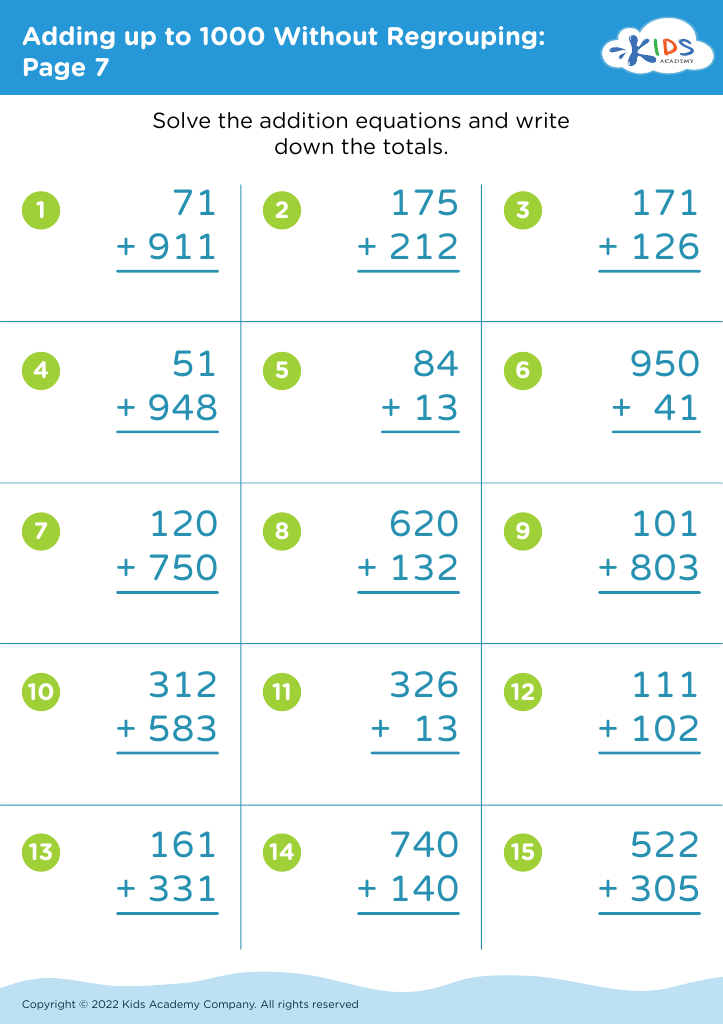Fraction comparison Adding up to 1000 Without Regrouping Worksheets for Ages 7-9
4 filtered results
-
From - To
Introducing our engaging "Fraction Comparison: Adding Up to 1000 Without Regrouping Worksheets" designed specifically for children ages 7 to 9. These worksheets provide a comprehensive approach to teaching fraction comparison in an easy and interactive way. Students will explore number relationships while practicing addition without the complexity of regrouping, fostering confidence in their math skills. Our carefully crafted exercises will enhance critical thinking and encourage a deeper understanding of fractions, helping young learners master this essential math concept. Perfect for classroom activities or home practice, these worksheets make learning fun and effective! Download now to support your child's math journey!
Understanding fraction comparison and addition without regrouping is crucial for children ages 7-9 as it lays a strong foundation for advanced mathematical concepts. First, grasping fractions helps children understand parts of a whole, promoting their ability to handle percentages, ratios, and proportions in real-life situations by recognizing that not all parts are equal. For instance, when dealing with recipes, measurements, or sharing items, children equipped with fraction skills can make practical connections in everyday scenarios.
Moreover, the concept of adding fractions reinforces basic addition skills, enhancing students' confidence in their arithmetic abilities. It encourages logical thinking and problem-solving, as children learn to reason about which fractions or numbers are larger and how to effectively combine them.
When teachers and parents support this understanding, they foster an environment that values mathematical reasoning, encouraging children to explore numbers more freely and accurately. A solid base in these areas helps prevent future struggles in math, pivotal for higher-level concepts. Consequently, this foundational knowledge paves the way for success in not only math but also critical thinking across various subjects, thus underscoring the importance of close attention to these skills during early education.



















